Focus
The Reckoning Project: Ukraine Testifies
The Reckoning Project aim is to ensure that as the war retreats from the front pages, justice in all its forms is not forgotten.
Years active: 2022-2023
Full project title: The Reckoning Project Ukraine: Evidence and Testimony from Ukraine
Project website: TheReckoningProject.com
Russia’s invasion of its neighboring state has shocked the conscience of the world, uniting individuals, organizations and states otherwise in agreement upon very little. The world’s attention is now focused on these issues, and on pledging support, but we confront two kinds of risks.
One problem is the short life of cultural activism and its tendency to make glibly inaccurate legal claims; the other is that weighty legal processes often carry little cultural weight. We seek to solve for both.
Recent Reports
Ukraine: The Reckoning Project Reaches Millions
Testimonies form basis of articles and multimedia packages in world-renowned publications as well as a future resource of potential war crimes evidence.
The Lost Paradise
Viktor Marunyak, the elected mayor of Stara Zbirjuvka, Ukraine, recounts what happened to his town and to him when Russian invaders arrived in February 2022.
The Reckoning Project: Ukraine Testifies
Project aims to help conflict journalists meet evidential standards that will allow their work to support future justice processes.
Inside the Basement Where an Entire Ukrainian Village Spent a Harrowing Month in Captivity
‘They Didn’t Understand Anything, But Just Spoiled People’s Lives’
Christmas in Kyiv: “The Cold and Loneliness Scared Me—Not the Russian Missiles”
I helped one man in this picture escape the horrors of Kharkiv. The other man? I may never know
Autocrats Are Weaponizing Globalization. Ukraine Is Where They Must Be Stopped
In liberated Kherson, Ukrainians are glimpsing victory after dark days
The Defiance of Celebrating Literature in the Midst of War
Holding Russia to Account for War Crimes in Ukraine
One Journalist’s Mission to Document Russian War Crimes
Scenes From Hell
‘We Need to Liberate Our People From the Horrors of Occupation’
Ukraine Is the Next Act in Putin’s Empire of Humiliation
Ukraine Is Our Past and Our Future
Analysis: Putin’s Gruesome Playbook
Russia’s Invasion Is Making Ukraine More Democratic
 1. THE CHALLENGE
1. THE CHALLENGE
Russia’s invasion of its neighboring state has shocked the world, uniting individuals, organizations and states otherwise in agreement upon very little. Moscow’s violations of international law and norms have been met by economic and other sanctions and exclusions, along with journalism, multimedia protests, art and polemic.
The world’s attention is now focused on these issues and on pledging support, but we confront two kinds of risks. First, that cultural and political pressures will dissipate before legal processes catch up. Second, that these processes will move too slowly to capture the graphic and human sides of these war crimes. One problem is the short life of cultural activism and its tendency to make glibly inaccurate legal claims; the other is that weighty legal processes often carry little cultural weight. We seek to solve both.
We know from past forgotten wars such as Syria or Yemen that this heightened attention will fade, international media will move on, and this aggression may go unpunished. Against this risk of erasure and forgetting, The Reckoning Project: Ukraine Testifies intends to secure legal and human information. The Reckoning Project: Ukraine Testifies is a multimedia project, uniquely combining legal and artistic/discursive/humanistic modes of accountability. These actions are complementary and reinforcing, as compelling, expressive narratives build support for justice, the success of which can, in turn, animate narratives as enduring monuments against erasure, with decisive legal outcomes. The first step is to ensure that the truths of these victims are recorded, and published, with legal bullet-proofing, to inform public opinion long-term, and provide evidence for legal proceedings and accountability of all kinds. We must start these processes of fact gathering and assessment of legal claims right now. There are possibilities to proceed under local Ukrainian and international law jurisdictions for a variety of offenses and remedies, many of which have been loosely mentioned in press coverage. We wish to bring greater legal and forensic rigor to this background noise and our ability, as The Reckoning Project: Ukraine Testifies, to do so has been recognized by Amnesty International among others. What differentiates us from the “noise'' is the emphasis on training high-performing journalists in the legal literacy and fact-gathering processes for adequate documentation.
We have today an advantage in gathering testimony and evidence that we did not have three decades ago during the Bosnian war, which continues to suffer from the failure to achieve real justice for the victims and survivors of crimes, including the genocide of Srebrenica and organized “rape camps.” The full scope of events, and the actions committed by governments, non-state actors, or others in the course of the conflict, can now be documented and relayed to the wider world in real time.
 2. PROJECT
2. PROJECT
This project will build on best practices from comparable UN projects led by Janine di Giovanni across the Middle East and by the Institute for War & Peace Reporting (IWPR) in Syria, and will engage the extensive network of Ukrainian journalists and documentary makers led by Nataliya Gumenyuk and Peter Pomerantsev at the Public Interest Journalism Lab (PIJL).
Our legal team includes international human rights lawyer, Ronald Roberts, with long experience in formative design and critical evaluation of the South African Truth Commission. Raji Abed Salam who helped build the Koblenz trial, leads the verification, codifying, and archiving efforts. We will then build evidence based on our 15 researchers who are spread out across Ukraine and are all expert human rights and investigative reporters.
Timing is essential. Justice delayed is justice denied. We know this from past wars such as Bosnia or Syria. The Reckoning Project: Ukraine Testifies launched in the early days of the war, while evidence is fresh in the minds of the victims and other witnesses, for both testimony-gathering purposes and for the historical record. Over the course of 12 months, The Reckoning Project: Ukraine Testifies will have a mandate to investigate alleged human rights violations and abuses, and make recommendations on accountability measures. The Reckoning Project: Ukraine Testifies will also collect and amplify the testimonies of witnesses and victims of Russian aggression, including those affected by discrimination, displacement and crimes against humanity. Our aim is to build our summaries into a strong evidential archive which can support cases to present to international and national courts.
More importantly, this is a project about the necessity of truth. In light of ongoing attacks on “truth tellers,” there has never been a more urgent time to underscore the links between freedom of expression and democracy. Freedom of expression, a building block of democracy, starts with fair and honest reporting. Protecting this, as well as countering organized disinformation campaigns that undermine accountability, is a critical responsibility for international institutions.
Human rights reporting, documenting evidence and gathering testimonies and legal summaries is urgently required as the war continues.
In this context, the project will work towards two complementary objectives:
- To record and disseminate Ukrainians’ stories to international audiences, to ensure the world remains engaged and informed about Russia’s aggression; and
- To collect and verify evidence for justice and accountability processes, including the ICC or national courts.
The stories of war must be told accurately, sensitively and respectfully and present a complete narrative. These stories have the power to influence policy, mobilize protest, and create actual shifts in thinking. In the past, victims’ stories weren’t told until well after a conflict had concluded, which deprived so many of access to justice. The Reckoning Project: Ukraine Testifies will help ensure that the world hears these stories and confronts the brutal crimes being committed in Ukraine.
 3. APPROACH & ACTIVITIES
3. APPROACH & ACTIVITIES
The proposed approach responds to the need for and value of honest reporting during war. Making sure the stories of war are told is important to individuals and communities to bring about healing and, ultimately, justice. The Reckoning Project: Ukraine Testifies will also help moderate against its misrepresentation, including “fake news” and propaganda based on verifiable lies. Considering the speed at which all information gets around now, it is imperative that the true facts are reported as accurately and quickly as possible. Failure to present honest reporting quickly both cedes the field to aggressors who advance false, self-serving narratives and allows for missed opportunities to influence both public and official audiences.
The Reckoning Project: Ukraine Testifies will:
- Train Ukrainian investigative researchers: a team of Ukrainian investigators and videographers has received training in legal literacy and fact-gathering processes for adequate documentation that adheres to international legal standards. These researchers have also received sensitivity and trauma training to protect both themselves and the individuals from whom they will be collecting the testimonies.
- Deploy researchers inside Ukraine: the researchers have been deployed, speaking with witnesses to gather testimonies, using the Berkeley Protocol, an OHCHR supported protocol for digital open source investigations and implementing Do No Harm training.
- Archive and verify evidence: After receiving new information from the researchers, the rest of the project team, consisting of career journalists, human rights practitioners, and lawyers for legal advice, will verify, format, and archive the information for future use in court.
- Promote multimedia content production: the project will also shape this information into content for media to inform public opinion long-term and ensure that this conflict is forgotten. With the focus on fact-based, legally admissible evidence, The Reckoning Project; Ukraine Testifies could be a vital force in providing accurate and indisputable recollections of the events unfolding in Ukraine.
 5. RESULTS
5. RESULTS
In too many horrifying conflicts, national and international courts have dismissed testimonies collected by journalists due to discrepancies between legal and journalistic modes of investigation. Inspired by those injustices reported and unpunished, The Reckoning Project: Ukraine Testifies aims to close this gap by training high-performing conflict journalists to gather testimonies so that the voices of victims may be heard inside the courts of law.
 8. OUR PARTNERS
8. OUR PARTNERS
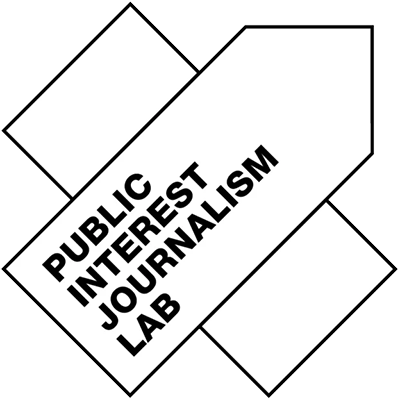 The Public Interest Journalism Lab (PIJL) – a Ukrainian media organization which promotes constructive discussion around complex social topics through high quality content since its founding in 2020. This interdisciplinary coalition of journalists and sociologists researches, creates, and popularizes best practices for public interest journalism in the digital age. Since the new Russian invasion, PIJL pivoted to frontline media reporting.
The Public Interest Journalism Lab (PIJL) – a Ukrainian media organization which promotes constructive discussion around complex social topics through high quality content since its founding in 2020. This interdisciplinary coalition of journalists and sociologists researches, creates, and popularizes best practices for public interest journalism in the digital age. Since the new Russian invasion, PIJL pivoted to frontline media reporting.
The core team of the PIJL consists of the most experienced and renown Ukrainian journalists specialized in reporting conflict, human rights, transitional justice, since 2014, and received multiple national and international awards for its which received multiple awards.
 9. SENIOR STAFF
9. SENIOR STAFF
The project will be guided by an expert team of journalists, academics and specialists.
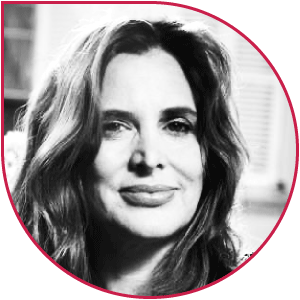 Janine di Giovanni has worked for over 35 years as a human rights reporter and investigator in conflict zones in the Balkans, Africa and the Middle East. She is a senior fellow at Yale University, the Jackson Institute for Global Affairs and a Visiting Fellow at the SNF Agora Institute at Johns Hopkins University. She is a 2019 Guggenheim Fellow in Non-Fiction, and The American Academy of Arts and Letters awarded her their highest prize for non-Fiction, the Blake Dodd, for her lifetime body of work. In 2016, she was awarded the Courage in Journalism Award for her distinguished work tracking war criminals most recently in Syria and Iraq, with a focus on ISIS. Di Giovanni is also the author of nine books. including The Morning They Came for Us: Dispatches from Syria which is a collection of war testimonies translated into 30 languages. She has made numerous documentaries, and is a frequent analyst on CNN, MSNBC, NPR and the BBC. Di Giovanni is the recipient of nearly a dozen journalistic awards, including two Amnesty International Awards, and the National Magazine Award, for her work in human rights and war reporting. She has worked for the United Nations on various initiatives, most recently directed Enabling Witnesses in Iraq, Syria and Yemen, partnered with the United Nations Democracy Fund and the Soufan Group.
Janine di Giovanni has worked for over 35 years as a human rights reporter and investigator in conflict zones in the Balkans, Africa and the Middle East. She is a senior fellow at Yale University, the Jackson Institute for Global Affairs and a Visiting Fellow at the SNF Agora Institute at Johns Hopkins University. She is a 2019 Guggenheim Fellow in Non-Fiction, and The American Academy of Arts and Letters awarded her their highest prize for non-Fiction, the Blake Dodd, for her lifetime body of work. In 2016, she was awarded the Courage in Journalism Award for her distinguished work tracking war criminals most recently in Syria and Iraq, with a focus on ISIS. Di Giovanni is also the author of nine books. including The Morning They Came for Us: Dispatches from Syria which is a collection of war testimonies translated into 30 languages. She has made numerous documentaries, and is a frequent analyst on CNN, MSNBC, NPR and the BBC. Di Giovanni is the recipient of nearly a dozen journalistic awards, including two Amnesty International Awards, and the National Magazine Award, for her work in human rights and war reporting. She has worked for the United Nations on various initiatives, most recently directed Enabling Witnesses in Iraq, Syria and Yemen, partnered with the United Nations Democracy Fund and the Soufan Group.
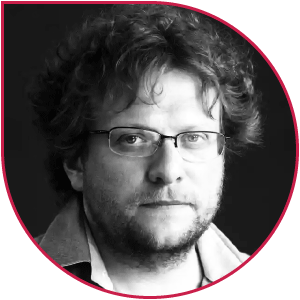 Peter Pomerantsev is a Senior Fellow at the SNF Agora Institute at Johns Hopkins University where he co-directs the Arena Initiative, a research project dedicated to overcoming the challenges of digital era disinformation and polarization. Over the past four years Arena has worked with Ukrainian journalists and sociologists to create media content about the country. Peter is an award-winning author specializing on the relationship between propaganda, culture and society, whose books include Nothing is True and Everything is Possible and This is Not Propaganda. He is a Fellow of the Royal Society of Literature, presents documentaries on BBC Radio 4 and previously worked as a TV documentary director and producer for Discovery, the BBC and others.
Peter Pomerantsev is a Senior Fellow at the SNF Agora Institute at Johns Hopkins University where he co-directs the Arena Initiative, a research project dedicated to overcoming the challenges of digital era disinformation and polarization. Over the past four years Arena has worked with Ukrainian journalists and sociologists to create media content about the country. Peter is an award-winning author specializing on the relationship between propaganda, culture and society, whose books include Nothing is True and Everything is Possible and This is Not Propaganda. He is a Fellow of the Royal Society of Literature, presents documentaries on BBC Radio 4 and previously worked as a TV documentary director and producer for Discovery, the BBC and others.
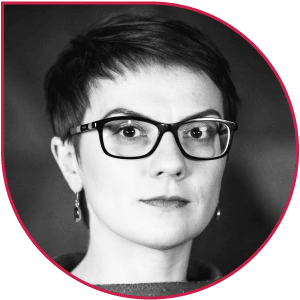 Nataliya Gumenyuk is a well-known Ukrainian journalist, author specializing in foreign affairs and conflict reporting. She is the founder and CEO of the Public Interest Journalism Lab. Nataliya is the author of several documentaries and books, including The Lost Island: Tales From The Occupied Crimea, and the Maidan Tahrir. Since the start of the Russian full-scale invasion to Ukraine Nataliya regularly writes for The Guardian, The Washington Post, The Rolling Stone, Die Zeit. She also provides commentaries for CNN, MSNBC, Sky News, etc. Gumenyuk was the co-founder, and for 5 years Head of Independent Hromadske TV and Hromadske International, and is currently a Board member. Gumenyuk is a Member of the Council for Freedom for Speech Under the President of Ukraine, as well as Independent Media Council.
Nataliya Gumenyuk is a well-known Ukrainian journalist, author specializing in foreign affairs and conflict reporting. She is the founder and CEO of the Public Interest Journalism Lab. Nataliya is the author of several documentaries and books, including The Lost Island: Tales From The Occupied Crimea, and the Maidan Tahrir. Since the start of the Russian full-scale invasion to Ukraine Nataliya regularly writes for The Guardian, The Washington Post, The Rolling Stone, Die Zeit. She also provides commentaries for CNN, MSNBC, Sky News, etc. Gumenyuk was the co-founder, and for 5 years Head of Independent Hromadske TV and Hromadske International, and is currently a Board member. Gumenyuk is a Member of the Council for Freedom for Speech Under the President of Ukraine, as well as Independent Media Council.
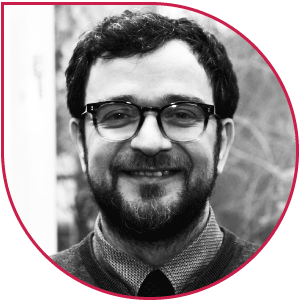 Raji Abdul Salam is a legal data archive analyst who helped in documenting war crimes, crimes against humanity, and concerns about attempted genocide in Syria and Iraq. His work in collecting, verifying, and analyzing hundreds of testimonies helped in holding Syrian war criminals and perpetrators of crimes against humanity accountable under the universal jurisdiction in Germany, Sweden, and Belgium and under the limited universal jurisdiction in the Netherlands. He has an extensive background in collecting, verifying, preserving, and performing multi-variable analyses sensitive to human rights violations, universal jurisdiction, and international litigation. Abdul Salam is an expert in investigating human rights violations and validating documented testimonies, tracing the chain of custody of collected evidence.
Raji Abdul Salam is a legal data archive analyst who helped in documenting war crimes, crimes against humanity, and concerns about attempted genocide in Syria and Iraq. His work in collecting, verifying, and analyzing hundreds of testimonies helped in holding Syrian war criminals and perpetrators of crimes against humanity accountable under the universal jurisdiction in Germany, Sweden, and Belgium and under the limited universal jurisdiction in the Netherlands. He has an extensive background in collecting, verifying, preserving, and performing multi-variable analyses sensitive to human rights violations, universal jurisdiction, and international litigation. Abdul Salam is an expert in investigating human rights violations and validating documented testimonies, tracing the chain of custody of collected evidence.

